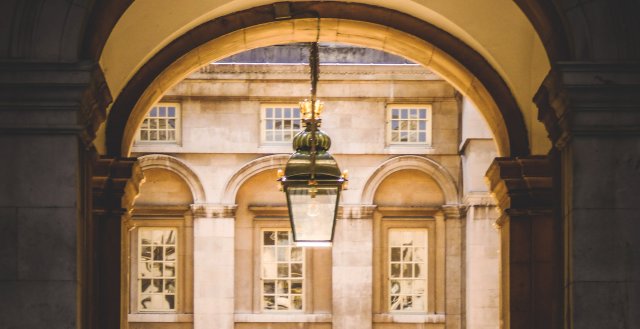- Civil: civil@qsc.law
- Crime: crime@qsc.law
- Employment: employment@qsc.law
- Family: family@qsc.law
- Civil: civil@qsc.law
- Crime: crime@qsc.law
- Employment: employment@qsc.law
- Family: family@qsc.law
An overview of the Health Protection (Coronavirus, Restrictions) (England) Regulations 2020
The Health Protection (Coronavirus, Restrictions) (England) Regulations 2020 (“the regulations”) came into force on the 26th March 2020 and have since been amended as of the 22nd April 2020. This article is based on the law as it is in force on the 23rd April, however the original version of the Regulations will still apply to any breaches that occurred before the amendments.
‘We are in unprecedented times.’
It’s a missive that is being despatched from virtually every news outlet so often that it runs the risk of becoming trite. It’s poignancy for individuals and companies across the nation is not to be diminished; freedoms we are used to have been curtailed and legislation enacted to create new criminal offences.
The impact of the Regulations can be largely summarised into impact on business and impact on individuals, with some inevitable crossover. There are 4 key provisions:
- Closure of premises and businesses (reg 4)
- Restrictions on business activities (reg 5)
- Restrictions on movement of people (reg 6)
- Restrictions on gatherings (reg 7)
Impact on Business
Closure of premises and businesses (reg 4)
Pubs, cafes, restaurants… any business premises in which food or drink is being sold for consumption on site must be closed along with other specified businesses and premises where people congregate such as cinemas, fitness centres, hairdressers, playgrounds and museums. Parts 1 and 2, Schedule 2 of the Regulations includes full lists which have been updated in the recent amendments.
There are some exceptions, for example:
- Cafes and canteens in hospitals, schools, care homes, prisons, defence facilities and homeless centres.
- Cafes and canteens in workplaces are generally to be closed unless there is no practical alternative for staff to obtain food.
- Outdoor markets have been suspended but livestock markets and auctions are now exempt and those stalls selling food are also allowed.
- Accommodation providers must close their dining rooms but are still permitted to provide food for patrons to eat in their rooms.
- Those businesses that were selling food or drink on site are permitted to offer a takeaway service.
- Premises that would usually be closed, can still be utilised for the purpose of hosting blood donation.
- Premises such as cinemas, theatres, bingo and concert halls, museums and, galleries, are required to close but those businesses may still operate by streaming shows to the public via the internet, radio or television.
Part 3, schedule 2 of the Regulations includes a list of the business and premises that are allowed to remain operational, for example (please note this list is not exhaustive):
- Food shops; the whole retail spectrum is included from large supermarkets to local convenience stores).
- Pet shops and vetinary surgeon businesses are permitted
- Shops selling alcohol
- Pharmacies and chemists, as well as other medical providers such as optometrists, dentists may continue to be open.
- Homeware shops; again, this covers larger retailers such as B&Q and smaller businesses such as your local hardware or homeware shops.
- Car maintenance such as petrol stations and mechanic garages are permitted to be open.
- Bicycle shops have been specifically singled out but wider sporting goods stores have not (notably Sports Direct did not continue trading from their stores after public rebukes).
- Financial suppliers such as banks, building societies and cash points can remain open.
- Post offices will continue to operate.
- Storage and distribution facilities.
- Public toilets are permitted to remain open.
Restrictions on business activities (reg 5)
There are businesses that are caught in the middle ground. They aren’t selling food or drink for consumption on site (part 1, schedule 2), they aren’t listed as businesses which must cease to operate (the list in part 2, schedule 2) and similarly they aren’t in the list of businesses given the specific go ahead to continue trading (part 3, schedule 2). For guidance, they must look to reg 5.
Commodities providers: Those businesses offering goods for sale / hire in a shop or library providers must cease to trade with the following exceptions:
- Provision of those goods via delivery following an order being placed online, by phone or post.
- Businesses selling food or drink to be consumed off premises.
Holiday Accommodation: Hotels, hostels, holiday rentals, caravan and campsites (amongst others) are required to remain closed with the following exceptions:
- Provision of accommodation to someone unable to return home, someone that uses the accommodation as their main residence, people than need it while moving house or whilst attending funerals.
- Provision of accommodation to the homeless.
- Hosting blood donation
- Undertaking a purpose as requested by the Secretary of State or Local Authority (for example, some hotels have been providing accommodation for asylum seekers).
Places of worship and community centres: Churches, mosques, synagogues etc. must be closed except when being used for funerals or being used to broadcast acts of worship via the internet, radio or television. Both places of worship and community centres are also permitted to be used for the provision of essential voluntary services, this wouldn’t include a local coffee morning but it does allow a church to be used to provide homeless support or organise food bank services for example.
Crematoriums: They are permitted to be open to members of the public for the specific functions of burials and funerals. The grounds of the crematorium, including any burial grounds or gardens of remembrance may remain accessible.
What of other businesses?
Across the spectrum of the UK economy, there are businesses which will be looking at these regulations and questioning where they fit in. The regulations are largely concentrated on businesses where members of the public will be attending the premises.
Those companies that operate from offices, with little in the way of public interaction may continue to operate, there continues to be no restrictions placed on the construction industry or on manufacturing beyond the restrictions in place for individual movement.
Much of the impact on the operation of those businesses will be encapsulated in the restrictions on movement of individual workers and this will be addressed in further detail below.
Impact on the Individual
Restrictions on Movement
Reg. 6 requires that people not leave their homes without reasonable excuse, the wording of the regulation gives examples of what would be deemed reasonable and the CPS have provided a list in their guidance. The list is not exhaustive and there may well be instances where the specific reason for leaving one’s house is not covered but may still be considered a reasonable excuse.
- To obtain basic necessities for essential upkeep, maintenance and functioning of the household, or the household of a vulnerable person. Note that this does not include home improvements but home maintenance is seemingly considered acceptable.
- To obtain or deposit money with any of the financial institutions mentioned in schedule 2, such as banks or building societies as well as money transfer organisations.
- Engaging in exercise either alone or with another member of the household is permitted. By way of example, it would not be permitted to meet someone from another household for a run or bicycle ride. There is no time limit to those activities in the regulations but what is “reasonable” is likely to be a factor, for example if a person leaves the house for a walk for 2 hours and spends 1.5 of those hours sat on a park bench then that may be considered unreasonable.
- To travel to or from work, or to provide voluntary or charitable services, where it is not reasonably possible for that person to work, or provide those services, from the place where they live;
- To provide care or assistance to a vulnerable person or to provide emergency assistance. Again, the issue of reasonableness will need to be considered. Providing care or assistance to a vulnerable person will be a reasonable excuse for leaving one’s home, however those doing so will need to have due regard to the regulation against gatherings (dealt with in more detail below) and also the purpose of their visit if attending the homes of those they are helping. For example, if you are attending the home of someone over the age of 70 to drop off shopping, that may be a reasonable excuse, but if you are attending to have dinner with them, then that is unlikely to be considered reasonable.
- To seek medical assistance, this is not limited to doctors but may include dentists, optometrists, chiropractors and other healthcare professionals included in schedule 2.
- To donate blood; it will be noted that many of the premises which must close as per the regulations noted above, may provide a venue for blood donation.
- To attend a funeral (conditions specified) or to visit a burial ground or garden of remembrance, to pay respects to a member of the person’s household, a family member or friend.
- To meet a legal obligation, including attending court or satisfying bail conditions, or to participate in legal proceedings; CPS guidance states that this applies to defendants and witnesses. There is no guidance in respect of other attendees to court such as those in support of defendants and witnesses. Those people do not have a legal obligation to attend and consequently it may not be considered a reasonable excuse for family members and friends to attend unless it is necessary due to some kind of vulnerability or to help with travel.
- To access critical public services such as child care, school (where the school is open to that child), social services, job centres, police stations etc.
- The continuation of existing arrangements relating to shared parental access to children. Although it ought to be noted that if there is a suspected infection of the virus within a household, those arrangements may need to be reconsidered, if there has been previous court involvement and a child arrangements order is in place the parties may wish to seek specific legal advice.
- To go to a place of worship, if you are a minister of religion or worship leader only;
- To move house, where reasonably necessary. If it is possible to delay the house purchase completion then that is advisable. Of course, if one accommodation contract is coming to an end and it cannot be extended, or a move is necessary for relocation then these may be clear examples of a move being reasonably necessary.
- To avoid injury or illness or to escape a risk of harm. This provision is of particular importance in matters where domestic violence and / or abuse is ongoing or where there is a risk of it. Arguably, it may also be applied to matters of mental health. If a person is suffering from the effects of isolation on their mental state to the point where it may cause harm, injury or illness to them or another member of the household then it may be a reasonable excuse for them to leave the property for a period of “cooling off” time.
Restrictions on Gatherings
Reg 7 restricts gatherings in public places of more than two people. It does not cover private homes, however given people who aren’t in the same household will have had to travel between one house and another, this would be prohibited as movement without a reasonable excuse.
There are, as always exceptions for the rule. These are:
- Gatherings of more than 2 people where they are all members of the same household. It is therefore acceptable to take a family walk but not to meet with other members of the family who live in another household.
- Attendance at a funeral.
- Gathering where it is essential for work purposes, for example on a construction site.
- Moving home when reasonably necessary
- When providing care / assistance to a vulnerable person or providing emergency assistance.
- To participate in legal proceedings or fulfilling legal obligations, for example attending court if you are a witness or defendant.
Enforcement
The Regulations give power to a “relevant person” to enact certain enforcement measures. A relevant person could be a police office, a PCSO or another category of person designated by a local authority (in certain circumstances) or a person designated by the Secretary of State.
Prohibition Notices: These may be served in companies or individuals to give them notice that the activity being carried out is prohibited. They must be necessary and proportionate in the circumstances and the CPS guidance only recommends their use in relation to business related activities.
Directions and instructions: A less formal enforcement measure than prohibition notices and yet the effect is similar. They may be used when someone is acting in contravention of the regulations to instruct them to stop what they are doing, for example sunbathing in the park or to direct them to return home in situations where the movement is not considered reasonably excusable. The CPS Guidance suggests that directions be given for breaches of restrictions on movement or gatherings. Directions must be necessary and proportionate.
Removal: If a person is outside their home without reasonable excuse, the relevant person may direct them to return home but they may also remove them from that location and return them to their home. Necessary force is permitted by the regulations. Removal and any force used must be necessary and proportionate.
Criminal offences:
There are three criminal offences that a breach of these regulations could give rise to:
- Contravention of a requirement in regulation 4, 5, 6, 7 or 8, without a reasonable excuse.
- Obstruction, without reasonable excuse, of a person carrying out a function under the regulations.
- Contravention of a prohibition notice or direction or reasonable instruction given to a person under R. 8 without reasonable excuse.
The offences are subject to a “reasonable excuse” defence. This would be considered on a case by case basis and it is not further defined in the regulations, consequently it ought to be considered according to its ordinary meaning.
The offences are summary offences and punishable by summary conviction or a fine. If the offence is committed by a company, then it can be prosecuted as such. If the contravention is attributable to the action or negligence of an ‘officer’ of that company, they may be prosecuted in tandem, as an individual.
When deciding whether or not to charge someone with a criminal offence, the CPS guidance reminds of the need to consider the public interest test, it is noted that considering the impact of the coronavirus on the UK as a whole that breaches should be taken seriously.
Where there is a breach of the regulations in tandem with other offences (for example a street robbery would be a breach of the regulation against movement), it should not be charged if it is likely to attract no separate penalty. It will however form part of the overall facts and will likely be an aggravating factor for sentencing.
The type of enforcement action taken will depend upon the nature of the breach, who is committing it and whether or not it is persistent.
The CPS have drawn up guidance and provide the following table to assist law enforcement and those working within the justice system understand the process to be followed.
| Breach type:
|
Step 1: | Step 2: | Step 3: | Offence: |
| Contravention of requirement to close business (R4) | Is there a reasonable excuse? | 1. Issue Prohibition Notice | 2. Issue FPN
OR 3. Charge |
Offence committed under Reg 9.1
A separate offence may also have been committed by the company or an officer of the company (R9.5) |
| Breach of restriction on business activities (R5) | Is there a reasonable excuse? | 1. Issue prohibition notice | 2. Issue FPN
OR 3. Charge |
Offence committed under Reg 9.1
Failure to comply with prohibition notice would be an offence under Reg 9.3 |
| Breach of restriction on movement (R.6) or gathering (R.7) | Is there a reasonable excuse? | 1. Give direction | 2. Issue FPN
OR 3. Charge |
Offence committed under Reg 9.1
Failure to comply with a direction would be an offence under Reg 9.3 |
| Obstruction a person carrying out a function under the Regs (R9.2) | Is there a reasonable excuse? | 1. Issue FPN
OR
2. Charge |
Offence committed under Reg 9.2 |









